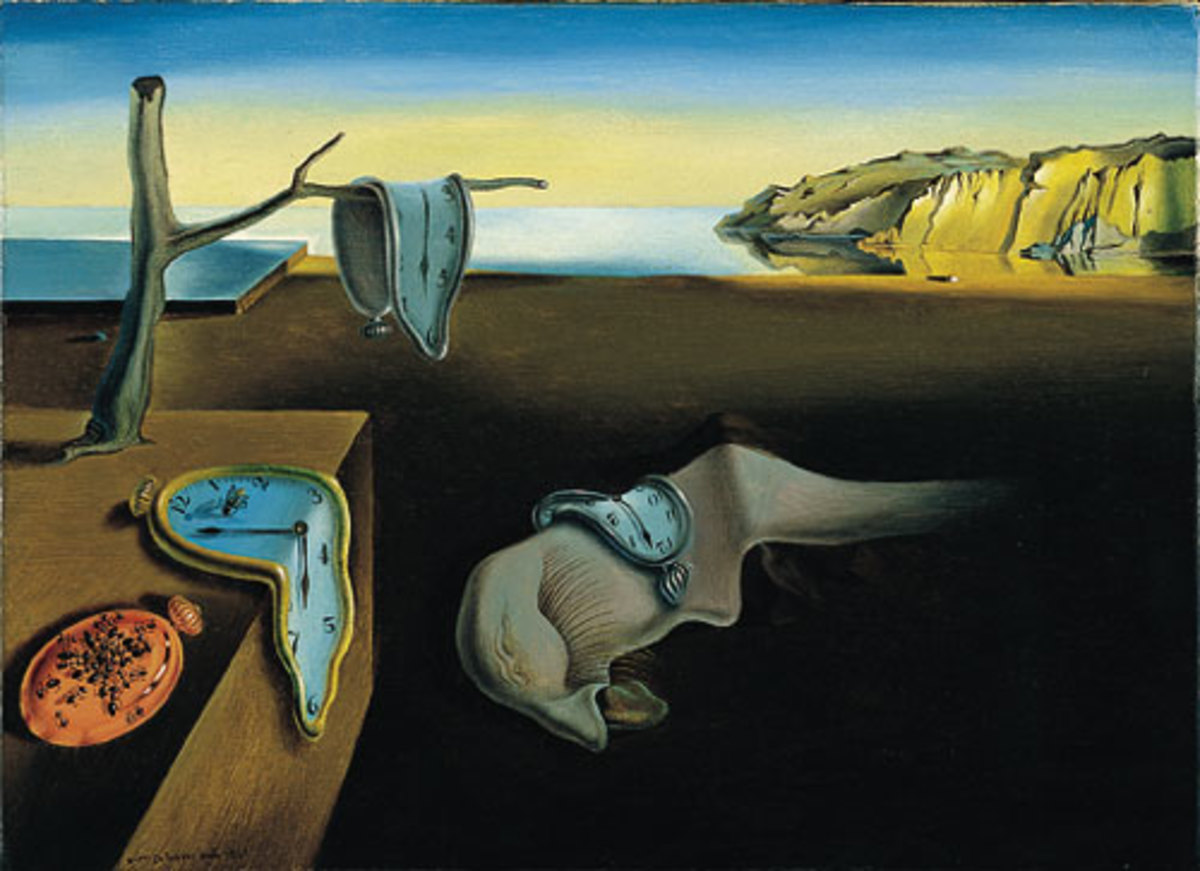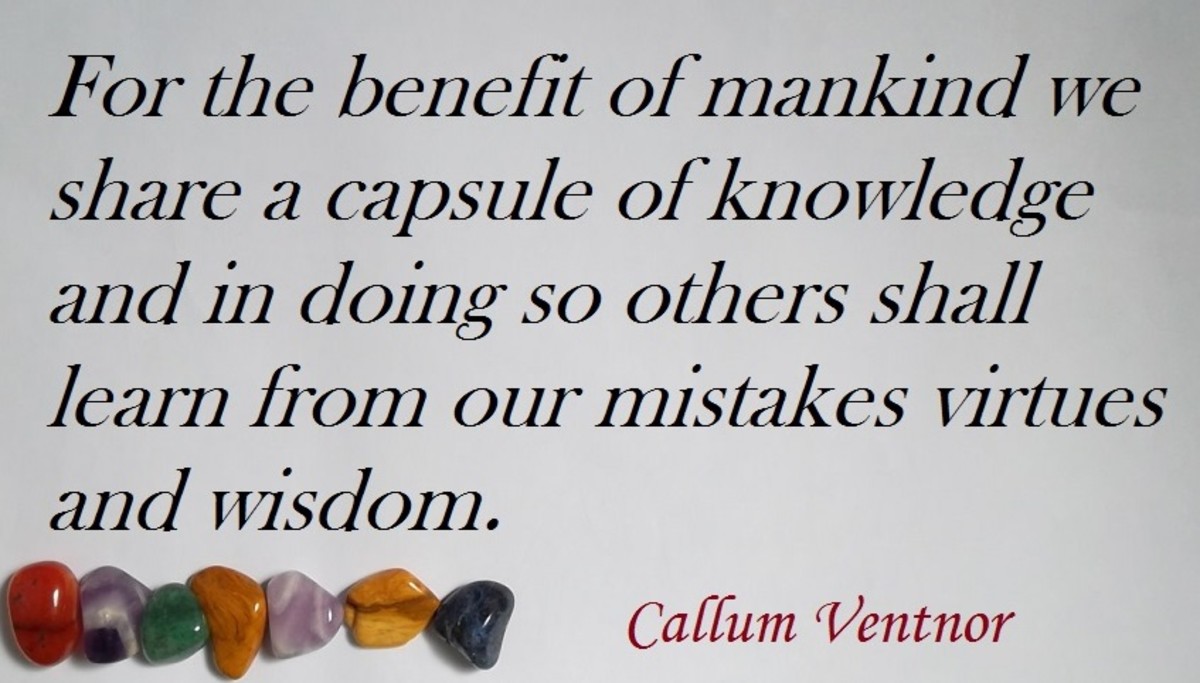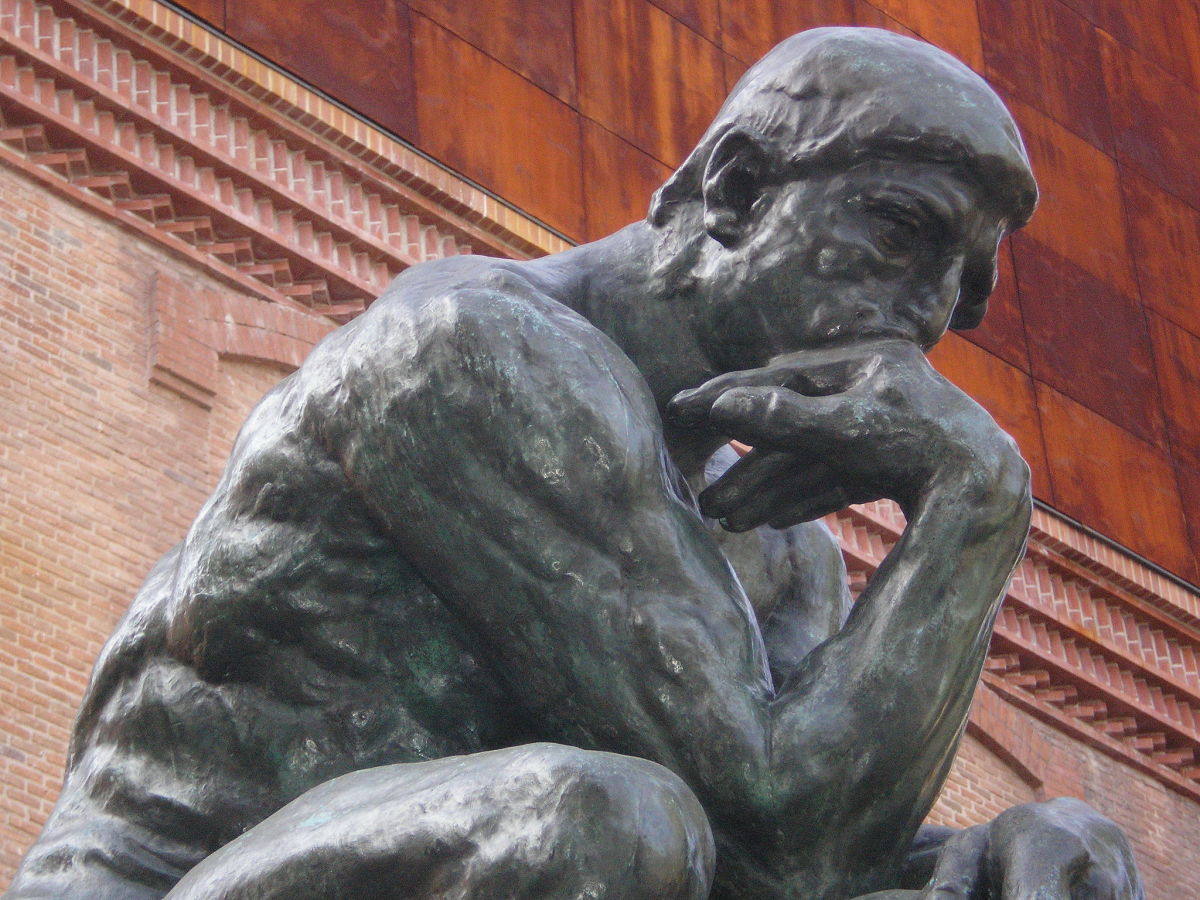Inspirational and Insightful Quotations #67 --- Memories
Quotations on Memories
Cultivate the power of dropping from the memory all that is useless and undesirable. Let go and quietly rest after a hard day’s work.
---George F. Butler, The Caledonian Record, St. Johnsbury, Vt., Dec. 28, 1920.
Obliterate everything disagreeable with yesterday. Start out with a clean sheet for today, and write upon it for sweet memory’s sake only those things which are lovely and lovable.
---George F. Butler, Whitesville News, Whitesville, N.Y., May 27, 1920.
It is the memories that men and women leave with the living that constitute the true achievement of their lives.
---Ralph T. Jones, Waycross Journal-Herald, Waycross, Ga., Feb. 21, 1945.
Man's happiest memories are of words spoken and deeds done in the spirit of love.
---James DeForest Murch, Christian Standard, Cincinnati, Ohio, Dec. 3, 1938.
Memory is the treasurer of the mind’s storehouse.
---Lucius W. Nieman, Milwaukee Journal, Milwaukee, Wis., Sept. 19, 1912.
Nothing bears such a high rate of interest as one’s memories.
---Edmund J. Kiefer, Buffalo Courier-Express, Buffalo, N.Y., April 30, 1930.
Memory is a cookie jar which a sentimentalist cannot let alone.
---Edmund J. Kiefer, Buffalo Courier-Express, Buffalo, N.Y., May 19, 1930.
In listing one’s assets one might put well up on the list one’s memories of personal pleasure unattended by regrets.
---Edmund J. Kiefer, Buffalo Courier-Express, Buffalo, N.Y., Oct. 19, 1958.
We live only once except insofar as our experience has been good enough to relive in memory.
---Edmund J. Kiefer, Buffalo Courier-Express, Buffalo, N.Y., April 14, 1960.
The still living would be more than pleased—even flattered—to see themselves pictured—all too late—in the frame of posthumous remembrance.
---Edmund J. Kiefer, Buffalo Courier-Express, Buffalo, N.Y., March 9, 1963.
Pleasant as it may be to recall the good times one has had, it will be more consoling at the last to recall whatever good one has done.
---Edmund J. Kiefer, Buffalo Courier-Express, Buffalo, N.Y., July 11, 1963.
Memory makes many payments for a good deed.
---Elijah Powell Brown, Juniata Sentinel and Republican, Mifflintown, Pa., Oct. 12, 1898.
One truth in the life is better than a hundred in the memory.
---Elijah Powell Brown, The Progressive Farmer, Winston, N.C., Aug. 24, 1897.
If there be joy in memory, it must be put into life today.
---Roy L. Smith, Buffalo Courier-Express, Buffalo, N.Y., Oct. 13, 1931.
Memory is 50 percent of the joy of living and 50 percent of the sorrow. Yet we must take both in measure as they come, doing our utmost to maintain a balance in favor of sanity.
—Jack Warwick, Pittsburgh Post-Gazette, Pittsburgh, Pa., Dec. 23, 1944.
Memories stay sweet longer if they are put away carefully.
‑‑‑Gloria Young, Baptist Standard, Dallas, Texas, Dec. 16, 1937.
It is foolish to live in the past. But it is wise to meditate on the past occasionally. That is one of the purposes for which we have been given memory. The man who thinks overmuch of the past blocks the way to future achievements. So does the man who seldom or never thinks of the past at all.
Almost every man has a just—particularly the past of youth and early manhood—rich in inspiring memory-images. He has memory-images of parents, teachers and friends who loved him and believed in him. He mas memory-images of boyhood chums, and of places associated with happy moments in his early life. Above all, he has memory-images of youthful ideals and aspirations. He can recall, if only he will make the effort, the dreams of his waking hours in that bygone time when his career still was veiled from him in the mystery of the years to come.
But there are other memory-images not so pleasant, episodes revealing character defects, recollections of punishment deserved, reminiscences of youthful follies and errors. It may be these multiplied as the years have mounted. One does not willingly think of them. One would put them out of remembrance.
Many men do put them entirely out of remembrance. They no longer give them a moment’s thought. But neither do they give any thought to the pleasanter memory-images of the life that was theirs in the long ago. They feel—at all events, they act as though they feel—that the present gives them enough to think about. Why trouble to think of the days that are done?
For many reasons. Not least to help them attack more intelligently the problems of the present, and to aid them in facing the future with more assurance. Perhaps they still are in the thoughts of early shortcomings which they have made notable effort to shake off. Perhaps they have showered themselves to chill the hopes and deaden the dreams of youth, thereby hampering their efforts to steer their ship of life to the glorious shores of success.
---H. Addington Bruce, Milwaukee Journal, Milwaukee, Wis., May 27, 1918.
The joy of memory works two ways—the joy to the one with whom we leave pleasant memories and the joy of memory that we carry away with us from those we meet, or love, and of things and places that have inspired and beautified our lives.
Stevenson says, in one of his essays, that “a spirit communicated is a perpetual possession.” Memory, it seems to me, is a kind of spiritual possession that hovers about us, like a shadowy halo.
What a tragic life we would lead if memory was not a part of all that we are. How lonely we would be without the memory of those long gone, with whom we communicated and united our hearts in life. How inspiring the memory of those who have gone before us, preparing a smoother path for us, over which to tread.
The memory of those who have enriched my life is more precious to me than could be all the moneyed heritages of this earth.
How well I recall the memory of my mother’s face as I told her goodbye for the last time in life, at a small railroad station in Iowa. The years only add the glow of heaven to that beautiful courageous face.
We love our books because we are able to store so much of them in our memory, thus carrying around with us people, countries, facts, beauty and the concentrated wealth of the world. As I sit and write, I hear the plaintive notes of a nightingale’s call, awaiting the doors of heaven to open!
---George Matthew Adams, Waycross Journal-Herald, Waycross, Ga., May 7, 1938.
I often think of the marvelous gift of memory. Just suppose that we had no such gift. What a barren thing life would be.
I took from my desk a package of papers, one an essay I had written in high school, another a thesis I had written in college. Immediately a whole flood of memories swept through my mind. My classmates, the good times we had, the scores of events that brought to you its charm and zest.
There is hardly an instance in reading but what I recall something I have read before in some other book, suggested by memory.
The faces of those we loved so deeply--now in a silent world--how dear and sweet the memory!
We get courage afresh each day because of the memories which play about the yard of our hearts. And as we walk out into the open air there is something nearly everywhere suggesting beauty and pleasure and happiness in the long ago. So it is that we carry our years with us, without the feel of any burden--lightened by the loveliness of memory. When we are alone, how splendid are the memories of beautiful words spoken to us by those we love and honor. And how chilling those that have left their hurt behind.
How good we should be to memory!
The most inspiring part of our lives are wrapped within the folds of memory--especially when we guard the happy memories and freshen them with a daily task of service, in some way performed to make those about us happy that we are in the world.
A man may lose everything he has--friends, money, position, even reputation--but just so long as a healthy and happy memory is left, he may begin all over--he may arise again, endure the dark nights, and climb the heights once more in greater heart than ever!
—George Matthew Adams, The Times-Picayune, New Orleans, La., April 9, 1927.
Experience is a teacher second to none if we will give place and time unto memory. ... The memory of times of special friendship, grace and love, as well as of ideals that helped in time of need, all have potent power to develop our best selves. ... Let memory take your past and your friend’s past and make for you new life today from their teaching. And that you be remembered as a blessing in years to come, let temperance, faith, love and service have large dominion in your life. An intemperate, dissolute one, a cynic doubter, a cold, unsympathetic one, or an indifferent one leaves no memory which imparts strength and life.
—John Edward Carver, Ogden Morning Examiner, Ogden, Utah, June 19, 1911.
Often whose who have passed away appear later in our memories in a different light than they did when they were here associating with us. Through the mists of years we see talents and powers we failed to observe in life, for memory forgets only the weaknesses, causing the virtues to stand out in strong relief.
We are prone to scorn idealists, calling them dreamers, but often their dreams attain nearer the truth than did our work-a-day minds. There is no dream too good to be true. Do you believe the mother of Edison could have dreamed of the fame of her son or that he should be held in such esteem as he is? Do you believe the mother of Lincoln could have dreamed of the influence he was to have upon the stage and upon literature when you know his temptations and weaknesses? Memory imprints upon us the lesson that there are men with us with possibilities that may not be attained but that later we will remember these possibilities and now while they are with us we should strive to bring out their traits of character and assist them to develop along the lines their natures point.
—John Edward Carver, Salt Lake Herald-Republican, Salt Lake City, Utah, Nov. 9, 1914.
Memory can be our best joy or our deepest torment from which we are never free. ... Of all the books in the libraries none surpass the leaves of memory for they are so real in romance, tragedy, adventure, progress and power. Whereas we are in old age when the eyes are weak or the nights sleepless or the road lonely memory will offer the records of a past to re-thrill or re-annoy. ...
One of the scourgings of memory is the knowledge of opportunities that have been neglected. If your spiritual life is not a growing one in faith, in joy, in victory and in service to your time and place you are neglecting your greatest of all opportunities. You were so endowed that you might find each year richer to your real self than the one that is past. Your minds, heart and soul as well as each talent has been so endowed that it could continue to develop thought all your life. If you are now in all ways a growing man or woman then for you is the lesson to remember and remembering your best self develop it.
—John Edward Carver, Ogden Standard-Examiner, Ogden, Utah, April 7, 1930.
The memories our young people carry out of their homes become a vital part of their future steadfastness. We have known several who have been kept true in temptation and cheered in sorrow through the memories of a religious home. The memories you give your youth and the songs they learn abide with them when all else is cast aside and forgotten. One of the prime causes of present-day weakness in character is this lack of a home life that lives in memory and son to rekindle the best of today for the periods of need tomorrow.
—John Edward Carver, Ogden Standard-Examiner, Ogden, Utah, April 11, 1938.
Memory is the only state of life which there can be no separation. ... Memory is like a wonderful spring, bubbling, refreshing, and also inspiring the seed-germ of dynamic strength.
—John Edward Carver, Ogden Standard-Examiner, Ogden, Utah, Dec. 5, 1949.
The memory window looks out into the past, and through it we see the happiest hours with those whom we loved, the dreams and high purposes of youth, the noble aspirations which keep the heart forever young as we cling to them and weave them into our present strenuous days.
—Henry Coe Culbertson, Los Angeles Times, Los Angeles, Calif., March 24, 1924.
The best foundation on which to build a strong memory is to cultivate a capacity for work. Good habits also contribute to a good memory; careless habits tend to distract and spoil the memory. A clear head is necessary to a keen memory.
It is essentially true of the mind that it grows on what it feeds. Youth is the time when the mind and memory are most sensitive, most retentive, and most plastic. In is especially important, therefore, to begin the proper training of the mind at an early age. It is difficult to dislodge cumbersome, useless things from the mind as it is to acquire new and better supplies of knowledge. What was done badly has to be undone--often at considerable cost. As with most worthwhile things in the world, a good memory calls for the paying of a price. Any youth or man who desires to train his memory must be prepared to pay the cost. He must be prepared to forego an endless round of even harmless pleasures. He must not hope to shine continually and conspicuously in social or society circles during his formative years. He must study while others play. His reading must be limited to books and magazines and papers which will help him acquire facts and a better understanding of whatever business or subject he is determined to master. He must utilize most of his spare time and not idle it away.
—James A. Farrell, The Shreveport Times, Shreveport, La., Jan. 25, 1920.
What a wonderful gift is memory! What would our lives be without it? What would man himself be without it? Memory is the golden thread linking all the mental gifts and excellencies together. Memory, when treated well, is like an angel, even within the soul; but treated ill, is like a black weird shadow casting a baneful and remorseful eye on all within our reach. We do not sufficiently consider the relation that the conservative faculty bears to our whole future lives–its power to afford us untold satisfaction, through honest and continuous effort to be and do what we ought, and also, its power to give us unceasing sorrow on account of neglect and indifference respecting the more sacred and important things.
—James A. French, Austin Daily Statesman, Austin, Texas, Feb. 26, 1906.
There is a past remindful of struggles and victories, of sorrows and joys, of small beginnings and astonishing developments, claiming recognition. There is a present beginning with gratitude for past achievements, with joy for beautiful surroundings, and pride in the general appreciation, giving us an object lesson, and there is a future full of fond anticipations for continued prosperity [and] elements of increased usefulness, ... enjoining us the redoubled efforts. All these considerations are grouped together in the kaleidoscope of the mind.
—Karl G. Maeser, Salt Lake Herald, Salt Lake City, Utah, Jan. 5, 1892.
Many confuse the terms memory and recollection, but they are distinguished thus: the former stores up what is carried to the mind; it is the office of the latter to bring it forth when needed; the first may be compared to a library, the second to the librarian; one is a cabinet, the other the custodian. To strengthen the faculty under consideration, the mind should be constantly drilled in mental calisthenics; there are mental misers who are always hoarding up, but never giving forth knowledge; whatever truth we received, let it be stored properly in the mind, in an orderly manner, that it may be brought forth when needed; the senses carry facts to the proper convolution of the brain; whatever goes to the mind remains there throughout eternity; we never forget, we only fail at times to recollect; we should strive to recollect our faults that we may overcome them. A man who cheats another is a knave, he who cheats himself is a fool; we should have our thoughts like the soldier his arms–ready for battle; we must not be absentminded. ... The mind is infinite in its capacity, but in the human body it has limited means for expansion. To cultivate the recollection, make notes, but use them only as spectacles; a person must be temperate in all things to acquire and retain full power of the mind; physical sins interfere with brain first, just as the tenderest flower is nipped first with the frost.
—Karl G. Maeser, Territorial Enquirer, Provo, Utah, Nov. 8, 1887.
Each of us has had experiences from the yesterdays of life which when recalled, bring back to consciousness and supreme happiness. Through these we are permitted to journey on the excursion of retrospection and to visit again the days that were. These are priceless pilgrimages.
Life is worth the living and the otherwise monotonous side of existence is worth all that it costs, so long as such memories are ours and such journeys may be had at will.
Against such excursions prison bars melt away and transportation rates play no part; the individual in the lonely hut with memory stands on the same level with the captain of industry; distance is annihilated and 20 years ago becomes as yesterday.
But, on the other hand, there are memories which, when recalled, cast a gloom and create a chill within the heart. For the time being they rob life of enthusiasm and write lines within the face.
These memories we need to forget, whether they deal with some financial or social scar or are associated with that loneliness best understood by people who walk no more with souls they learned to love. Many times it is good for the curtain of forgetfulness to be drawn.
Most people attempt to forget by burying their memory picture, as it were, within the subconscious and by refusing, henceforth, to think of it again. This is known as repression. Once buried they attempt to fight it back each time the memory picture rises to consciousness.
But such attempted repression sooner or later becomes a splinter within the personality, to work havoc in later life and in some other way manifest itself. The cure is brought about by subconscious drainage.
A refined and cultured woman had a great sorrow. Her husband was killed in an attempt to rob a bank. The criminal side of his nature first became known to her as she read of his death in the morning paper.
After the tragedy she moved to a far distant state where people did not know about her sorrow and there, alone, attempted to fight this memory picture each time it came to consciousness.
One day this woman went into the mountains near her home, and there, alone, told her story to a tree--told it all, in every detail, even to that the recall of which hurt her worst. This was followed, much to her surprise, by an inward sense of relief. Accidentally she hit upon the very "key" to psychoanalysis.
A few days later she told it all over again to the same tree, and repeated once more the part of the story that, upon recall, gave her the most pain, draining the memory boll to the core.
Then she discovered that her former great sorrow was as though it belongs to a distant past, and the persistency of the memory picture to rise to consciousness no more. The event was soon recalled only at will, and accompanied then by far less painful emotion.
This woman had not only contacted the secret of the art of forgetting, but in thus giving drainage to the unpleasant memory picture, her peace of mind was restored and her health greatly improved. Accordingly she began to see life from a different angle.
The subconscious is ever unwelcome soil to memories which should not be buried. The art of forgetting, therefore, consists in "talking it out of the system," rather than in attempting to bury the memory record within the subconscious.
—Julian Pennington, The Atlanta Constitution, Atlanta, Ga., Oct. 15, 1933.
Sorrow could take the color out of life, but time and memory would bring it back again. Time cannot squeeze all the contents from the sponge of memory.
True enough, the past is defenseless, but not so defenseless as we think. One of the most potent forces in life is that of memory. Vicissitudes, misfortune, circumstances may rob us of cherished friends and things but they cannot take away our memories. Time and memory are twin angels. Memory gives us a continuing relationship with life and time interprets memory.
Through the beneficence of time how mellow grow our memories. The scars of yesterday remain, but the wound is healed. Memory and time–how they complement each other.
To all who mourn the losses of loved ones, friends, or cherished possessions, I beseech you to give time a chance. You will hold fast your precious memories, but sit down with time and time will interpret for you the significance and the values of your memories. Withhold your judgments until time has spoken.
—Floyd Poe, Dallas Morning News, Dallas, Texas, April 12, 1950.
What we remember makes up a larger part of our lives than we realize. In the first place, it is the basis of all knowledge. If we did not remember, there could be no books, no science, no art, no civilization. Indeed, without memory we could have no satisfactory dealings with one another. Without memory we would be worse off then the beast and hardly above the sticks and stones. Memories, too, furnish some of our most exalted and charming pleasures. The memory of a happy journey is half of its delight. What price would we set upon our memories of our dear ones who have gone from us? Memories of kind words spoken to us, memories of victories we have won--these fill our lives with joy.
But if memory can be a great blessing, it can also be a great curse. What would we not give to be able to forget some terrible quarrel, some harsh word, some silly act, some sin we have committed. And what a great gain, if we can learn to fill our lives with the right kind of memories and avoid the wrong kind.
—E.S. Wagner, The Shreveport Times, Shreveport, La., June 15, 1924.
Powerful is memory, greatest perhaps of human faculties, and great are the consolation and happiness that memory bring. ...
Memory means stimulation of will and mind. Man endures pain, remembering what other men and women have suffered. He forgets selfishness, remembering nobler and is more patient dealing with others' mistakes when he remembers his own. ...
We live not merely in the present, a moment that flashes by. Our lives are in the future, full of hope, of desire to do better, we find inspiration, comfort and peace by living part of the time in a past that is gone, cannot be touched or made worse or better, but that can be used every day to warn, guide and bring consolation. ...
To control memory in the past is almost as important as to control work in the future. Memory influences everything that we do.
To brood constantly on past mistakes and disappointments, things gone that can never be recalled, is deliberately to make life unbearable and to kill effort.
But completely to forget, ingeniously to brush aside all memory of mistakes and foolishness, is even more harmful than perpetual brooding.
No man could ever boast of a past free from mistakes or remember nothing of which he was ashamed.
Bitter memories, remorse and shame, greater or less, are in every man's life.
"What's done is done," but that should not be "an end of it." The memory of past mistakes should help us to prevent future mistakes. ...
The greatest power is imagination, and in memory, we live in the imagination. We bring back, we imagine that which has been. ...
To bring back happy memories and live in them adds hours and years to the happiness of today. Happy memory is to the present hour what sunshine is to the earth.
—New York American, New York, N.Y., June 6, 1926.
As we paint the pictures of imagination we make permanent those of memory.
—Henry F. Cope, Chicago Tribune, Chicago, Ill., Nov. 28, 1909.
In the garden of memory, the roses of yesterday find their fragrance enhanced.
—W.A. MacKenzie, The Leesburg Morning Commercial, Leesburg, Fla., April 5, 1928.
Our happiest memories are those which recall the simplest pleasures.
—Roy L. Smith, Tampa Morning Tribune, Tampa, Fla., April 4, 1932.
Memory is that which lifts life out of the present tense.
—Roy L. Smith, Tampa Morning Tribune, Tampa, Fla., July 15, 1937.
Memory is the treasury house of old age.
—Roy L. Smith, Tampa Morning Tribune, Tampa, Fla., July 15, 1937.
The truly happy man is the one who has no fear of the company of his memories.
—Roy L. Smith, Tampa Morning Tribune, Tampa, Fla., July 27, 1935.
Memory is the faculty that gives the future significance.
—Roy L. Smith, Tampa Morning Tribune, Tampa, Fla., Sept. 26, 1938.
A bad memory is not one that forgets, but one that remembers the wrong things.
—Wesley S. Izzard, Amarillo Daily News, Amarillo, Texas, Aug. 1, 1958.
Memory is a mental storehouse, where our experience is garnered up, whether we know it or not, for sometimes things which seemed to have been entirely erased from the tablets of the mind, were, by recollecting perhaps a trifling circumstance, and thus discovering the connecting link in memory’s chain, brought to remembrance. Memory, like every other faculty, is elastic; it can shrink within itself either by neglect, sickness or old age, and expend by proper cultivation to a most extraordinary degree.
—Alexander Ott, Deseret News, Salt Lake City, Utah, June 18, 1862.
Memory signifies the faculty of remembering images made upon the mind. In its mental analysis it has three subdivisions: memory itself, recollection and conception. ... Remembrance is the faculty by means of which we recall facts, scenes, dates, and persons, through our own agency or exertion, that is to day, we bring back to our mind things which had been forgotten or lost in the maxes of the past. Sometimes we remember by a local circumstance events before we think of them. ...
Recollection refers to the intellectual that is brought back to the mind judiciously and understandingly. Conception is that mental process, which by its own instrumentality and exertion, delineates, traces and recalls impressions or perceptions, received either by our own reflection or through the external world. ...
Proper attention is one of the first principles which ought to guide everyone who is desirous of retaining something. But a person may say, “It is impossible for me to be attentive because my mind is always astray, and running, without my being aware of it, in various channels, hence I remember nothing.” This is however the result of a peculiar intellectual habit forever with insane persons, such as maniacs, etc., the memory is generally good, but only dominant and unassisted by the regular process of the mind.
The habit of attention is cultivated by being a person of one idea, that is to say, by a close application of the mind on the subject before us, and by treating the relationship existing between different things and matters; thus, by sober reflection, we will find that there are causes and effects, and that, in the economy of nature, are working an endless variety of principles. Such a mental process will then constitute a person of an inquiring mind, leading him constantly to grasp after truth. ...
If we attentively watch the remarkable process of remembering things and persons, we find that frequently scattered, disconnected facts rise chaotically within us, till gradually the inconsistency of seeing heterogeneous or discrepant points put together, is removed by new items coming to our remembrance which bear directly on certain circumstances and persons, and thus, after a while, form a connecting link of facts long forgotten. ...
Intimately connected with the above process of remembering persons or facts through the medium of association, is the very interesting phenomenon of having things and individuals brought to remembrance without any exertion from our part, or without our being aware of them, so that we look on them like on the misty, confused scenes of a dream. Here in this case thoughts and items are evidently rising spontaneously and connecting themselves according to their relationship in a manner in which we are entirely passive, till we are at last roused from out of the revery, for such is this mental condition, and endeavor to remember what has passed before us. Everyone has experienced this remarkable phenomenon more or less, it is almost that in a waking state what constitutes a dream when our sensorial faculties have for a little while retired from the external world and are confined strictly to the mysterious operations of the inner man.
If we further inquire to what source we traced the rising of such and such items in different relationships, we will find an examining of our own mental train or that of others, that either some peculiar habit, constitution, avocation or inclination gave rise to those ideas and their relations. ...
The constant habits of thought and peculiarities of mental temperament make a person likewise subject to very different impressions relative to a certain subject or object.
But in reference to the process of remembering in consequence of some local and incidental associations, very peculiar phenomena take place. A long train of thoughts is being recalled by the mere sight of a certain place, and the impressions made are more vivid, more painful than the mere remembrance of facts.
—Alexander Ott, Deseret News, Salt Lake City, Utah, June 25, 1862.








